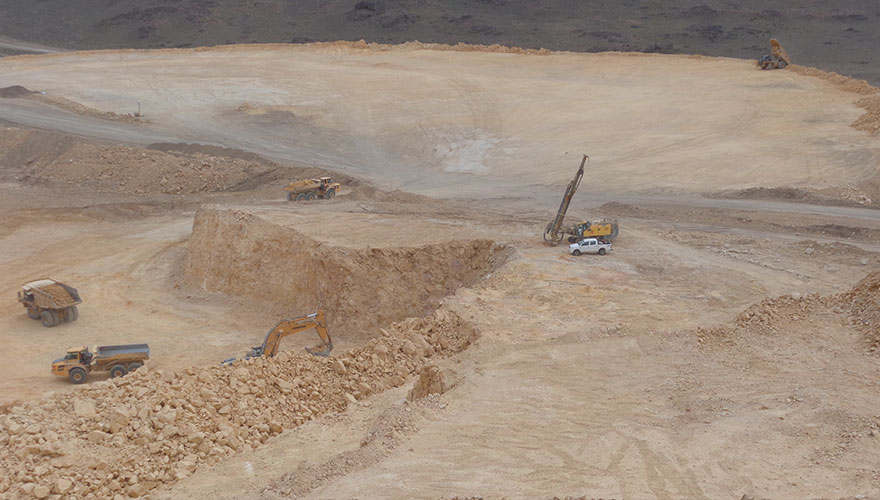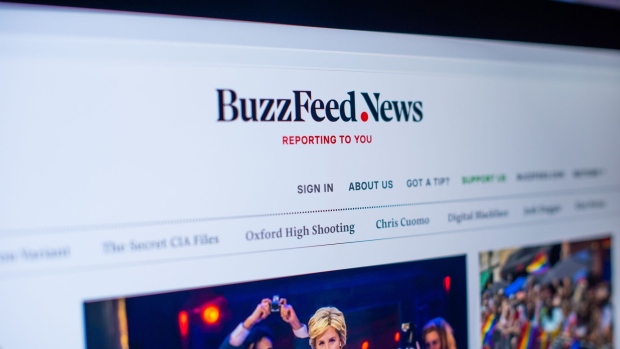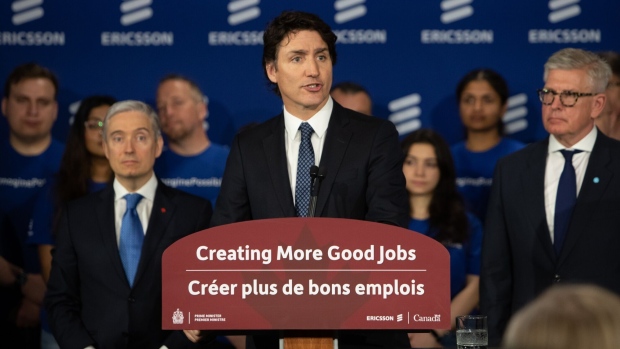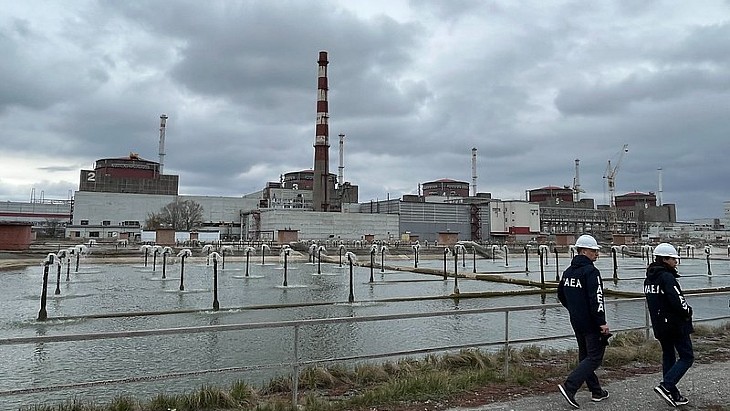Prime Minister Justin Trudeau’s government agreed to subsidies that may top $13 billion over a decade to land an electric-vehicle battery plant by Volkswagen AG, the company’s first gigafactory outside Europe.
The money is provided through an unprecedented contract negotiated by Trudeau’s industry minister, François-Philippe Champagne. Canada will provide annual production subsidies as well as a grant toward the factory’s capital cost — effectively matching what the German automaker could have received via the Inflation Reduction Act if it had located the plant in the U.S., according to government officials.
The deal offers a stark example of how the U.S.’s trading partners are trying to keep pace with the financial incentives contained in climate legislation signed by U.S. President Joe Biden last year. The factory, to be part of Volkswagen’s PowerCo unit, will be likely be the largest manufacturing site in Canada, the minister said.
Champagne and other government officials believe the financial aid for Volkswagen is necessary to protect Canada’s position in the North American auto sector as it moves away from internal-combustion engines, and to ensure the country isn’t seen as merely a provider of critical minerals but also a source of advanced manufacturing and clean technology. The government is also in talks on financial help for a plant that LG Energy Solution and Stellantis NV have said they’re planning to build in Ontario, the minister said.
“This is about us seizing generational opportunities,” Champagne told Bloomberg News in an interview. “This is about raising our level of ambition.”
The minister said the plant will cost about $7 billion to build, will have a footprint equal to 350 football fields, and will create thousands of jobs in the region around St. Thomas, the southern Ontario city where it will be located, about two hours northeast of Detroit.
The economic value of bringing one of the world’s largest automakers to Canada for the first time — with the supply chain spinoffs it will create — is worth far more than the cost of the subsidies to the government, Champagne argued.
Still, the size of the incentives is striking. The production support alone is expected to range from $8 billion to $13 billion over 10 years, depending on how much the plant produces and what happens with US policy. The contract is written so that Canada’s production subsidies will stay in place only as long as the Inflation Reduction Act is in force. If the U.S. reduces its incentives for clean manufacturing, Canada’s will go down proportionally.
On top of that, Canada is offering about $700 million in capital expense grants to Volkswagen through its Strategic Innovation Fund. And there may be more money from Ontario’s provincial government, though Champagne declined to go into detail.
The Inflation Reduction Act, despite its name, is in fact a law that enacts large-scale subsidies for low-carbon industries, particularly through production tax credits. Those incentives are generous and broadly available, meaning they could go beyond the official US$370 billion in estimated costs, depending on how widely they’re used.
The legislation has put massive pressure on Canada and other US trade partners to provide money or lose out on lucrative new investments in the green economy. In a speech in Washington last week, Canadian Finance Minister Chrystia Freeland warned that democracies need to avoid a “race to the bottom” in corporate subsidies that could erode their tax bases and social safety nets.
The Volkswagen deal in Canada also raises the question of how much financial help other automakers and battery producers might be able to get. Last year, LG and Stellantis announced a US$4 billion joint venture in nearby Windsor, Ontario, across the border from Detroit.
“We are negotiating,” Champagne said when asked if the LG-Stellantis plant would receive the same incentive package from Canada. He pointed out the government has promised to level the playing field with the U.S.
Champagne added that the sheer size of the subsidies means Canada has to be selective. Asked how many vehicle battery plants the country can realistically support, the minister said it’s going to be “at best, a few of them.”
Trudeau’s Liberal government is likely to face some backlash over the deal. It has already taken some criticism for not giving more detail on the cost. “How much of Canadians’ money is he giving to this foreign corporation?” Conservative Leader Pierre Poilievre tweeted shortly after the factory was announced last month. “How much is the cost per job?”
Canadians will understand why the government put up so much funding to attract Volkswagen, Champagne said. He also noted the money won’t start flowing for many years, given it’s tied to production at a factory that still needs to be built.
The industry minister argued the economic impact of the plant in its first five years will equal the entirety of government funding for it. Over the next 30 years, the plant will generate more than $200 billion in value for Canada, he said.
“You have to look at what others are doing, and particularly in our case, what the U.S. is doing,” he said. “What’s the cost of inaction?”
New Ontario Volkswagen EV battery plant to
create 3,000 jobs
Mia Rabson, Liam Casey and Jessica Smith, The Canadian Press
Volkswagen's massive new electric-vehicle battery plant, being built in southwestern Ontario, could eventually grow to be the automaker's biggest gigafactory in the world, the CEO of the company's battery arm said Friday.
The company announced last month it had selected St. Thomas for the site of the first gigafactory in North America.
On Friday, further details, including some of the financing, were made public at a splashy announcement in the town's railway museum that attracted the prime minister, the premier and almost every federal, provincial and municipal politician with even a tenuous connection to the region.
"Congratulations from our side for outperforming the competition and bringing this gigafactory to St. Thomas," Blome told them. "That wasn't easy."
It also wasn't cheap.
Canada has committed $700 million in up front capital costs towards the $7-billion price tag to build the factory. Ontario added $500 million.
Once the factory is producing batteries — the goal is initially to make enough every year to power one million electric vehicles — Canada is offering production subsidies to equal the production tax credits Volkswagen would have received if it had set up shop in the United States.
Those subsidies, which are estimated to be in the range of $8 billion to $13 billion over a decade, will disappear or be reduced if the U.S. supports within the Inflation Reduction Act are eliminated or phased down.
Blome said money on the table wasn't the only factor in deciding to set up shop in St. Thomas, but it was "the first entry."
"You have to be competitive," he said. "If your product is not competitive in product or in cost, you have no future."
He said 200 factors were considered.
Every cent is worth it, Prime Minister Justin Trudeau said.
"Let's be really clear about what's happening today. Other parts of the world, including our neighbours to the south, were willing to put up an awful lot of money to get this project there," he said.
"Everyone wanted this, so yes, we put up a lot of money. Money that's going to come back in economic investments very quickly."
The federal government said that with the economic benefits from the plant, the government investments will be recouped in just five years.
The plant will create up to 3,000 direct jobs and 30,000 indirect jobs in the region. It will be operated by PowerCo, the battery subsidiary Volkswagen created last year. The St. Thomas plant is the third planned by the company, but Blome said given the fast growth in demand for electric vehicles in the United States, it could eventually become the company's biggest.
Ontario Economc Development Minister Vic Fedeli said it's a huge win for St. Thomas and the province as a whole.
"We've landed the largest auto investment in the province's history," he said.
"It's not only a big win for the people of St. Thomas, but it's huge for Ontario."
The plant will be built on a 1,500-acre "megasite," with construction set to begin in 2024 and production expected to begin by 2027.
The sprawling plant will anchor an industrial park where several other manufacturers will be needed to supply critical components for the batteries, Fedeli said.
Ottawa and Ontario began wooing the German automaker a year ago when the Volkswagen board came to Toronto, Fedeli said.
Federal Industry Minister François-Philippe Champagne and Fedeli formally pitched the company in Germany last fall, which became a turning point in the deal.
"We really felt that when we flew back from that meeting with Volkswagen, we were very confident then that Ontario was the right place for them, but we had to put the right package together," Fedeli said.
The United States had an edge on proximity to vehicle manufacturing because Canada has no Volkswagen plant. But Canada had the edge on raw materials — namely the minerals and metals needed for the batteries — as well as an abundance of clean power.
Fedeli said the pitch included two "line items that were missing" from every other country's pitch to Volkswagen: universal health care and the loonie.
"We showed the value of the Canadian dollar and the value of universal health care and what that means in savings," Fedeli said.
This will be the second electric-vehicle battery factory in Ontario. Last year, automaker Stellantis and South Korean battery-maker LG Energy solution announced they were building a facility in Windsor, Ont., with a $5-billion price tag.
This report by The Canadian Press was first published April 21, 2023.
*THE QUOTE IS PARAPHRASED FROM LENIN WHO SAID;
SOCIALISM IS STATE CAPITALISM AND ELECTRICITY





 IAEA staff on a recent mission to Zaporizhzhia (Image: IAEA)
IAEA staff on a recent mission to Zaporizhzhia (Image: IAEA)